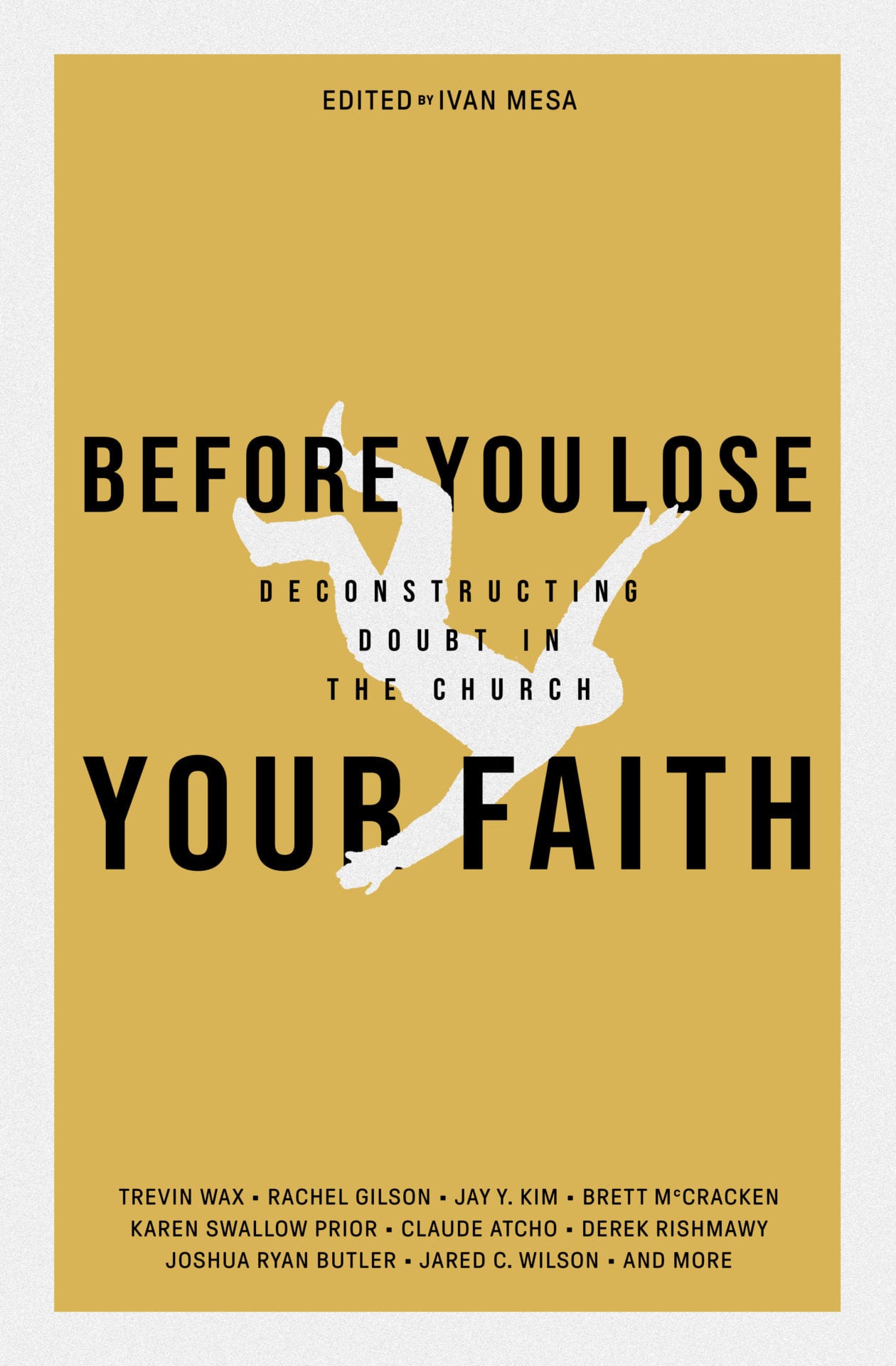After an interminable election season, we Americans will finally go to the polls today to choose our elected officials. Yet some of us are still unsure about what we should, particularly when it comes to the presidential race.
Should we choose the “lesser of two evils”? Should we vote for a third-party candidate? Should we choose not to vote?
What is the best option for a conscientious Christian?
Christian Standard for Voting

As in all areas of our life, Christians should first turn to Scripture for guidance. The Bible doesn’t speak directly about how we should vote, whom we should vote for, or even whether we must vote at all. But there is a frequently cited verse in Jeremiah that should shape our decision: “[S]eek the welfare of the city where I have sent you into exile, and pray to the LORD on its behalf, for in its welfare you will find your welfare” (29:7).
Does that admonition still apply to Christians today? I agree with John Piper, who once said about that verse, “If that was true for God’s exiles in Babylon, it would seem to be even more true for Christian exiles in this very ‘Babylonian’ world.”
Starting with this standard, I believe we should adopt an approach to voting outlined by Jason Brennan in The Ethics of Voting:
Citizens must vote for what they justifiably believe will promote the common good, or otherwise they must abstain.
Brennan adds that citizens should justifiably believe that they are voting for candidates or policies that will promote the common good:
It is not sufficient for them to believe they are voting in a public-spirited way. Rather, they should be epistemically justified in believing they are voting for the common good.
A belief is epistemically justified when a person has sufficiently strong evidence to warrant the belief.
[…]
Voters should have good grounds for thinking that they are voting for policies or candidates that will promote the common good. In general, there are three ways that voters will violate this norm. Bad voters might vote out of 1) ignorance, 2) irrational beliefs, or 3) immoral beliefs. In contrast, good voters not only know what policies candidates will try to implement, but also know whether those policies would tend to promote or harm the common good.
A reasonable standard for Christians would be to cast our votes based on what we believe will most promote the common good. This task is made more difficult, of course, since we often disagree with what it means to promote the common good and differ on what elements of the common good should be prioritized. Our paths also diverge when we attempt to decide what voting strategies are most likely to fulfill this standard.
But we have to choose a strategy, so we should do so in the most ethical manner possible. There are hundreds of strategies we can take—far too many for us to consider—so we’ll evaluate five main types. (Although this will focus on the presidential election, these strategies may also be applied to other electoral races.)
No Qualms Strategy
Strategy: Vote for the candidate for which you have no qualms about, the candidate you think is most likely to implement policies that will either promote or at least not harm the common good.
Evaluation: This is the most common type of voting strategy. We often resort to this approach when we believe: (1) a candidate has outlined a clear approach to promoting the common good with which we agree, (2) the candidate has the character necessary to promote and not harm the common good, and (3) the candidate is not otherwise unfit or unqualified for the office.
Ethical assessment: The morality of this approach is based on subjective criteria. As long as you have taken the time to become informed about the candidate and are not violating your conscience by ignoring genuine concerns you might have about the candidate’s ability to promote the common good, then you can adopt this strategy with a clear conscience.
Don’t Vote Strategy
Strategy: Choose not to vote for any of the candidates because: (1) no candidate has outlined a clear approach to promoting the common good with which you can agree, (2) no candidate has the character necessary to promote and not harm the common good, and (3) all candidates are otherwise unfit or unqualified for the office.
Evaluation: This is essentially the other end of the spectrum from the No Qualms strategy.
Ethical assessment: Because there is no moral requirement to vote, much less vote for any particular office, this strategy is the least likely to be unethical. Still, voting is an important civic function, and Christian citizens should have solid reasons for refusing to participate. We therefore ought to ensure that our reasons for not voting are truly conscience-based and not merely based on apathy or laziness.
Least Bad Option Strategy
Strategy: Since one of the two major party candidates will win the election, you choose to vote for the one who is least likely to harm and most likely to promote the common good.
Evaluation: This approach is often a mid-range option between the No Qualms and the Don’t Vote strategies. You might have qualms about a candidate, but they are not enough to cause you consider the candidate completely unworthy of your vote.
Ethical assessment: The morality of this approach is similar to the No Qualms. It’s not enough to vote against a candidate because he or she is a “bad option” since we must vote for someone who has a high likelihood of promoting the common good. We therefore can’t choose the “lesser of two evils”—which would imply both candidates would be harmful for the common good. However, you may be able to vote in good conscience for a least bad option if you believe that the candidate is otherwise qualified and fit for the office.
Third Party Strategy
Strategy: You decide not to vote for either of the two major candidates, but instead vote for an independent party candidate.
Evaluation: If you believe the Least Bad Option is an untenable choice (because both options are equally bad, just in different ways), this may be your optimal strategy. However, an essential consideration to remember is that casting a vote is positive act—you are voting for a candidate, not against another one. This strategy is therefore similar to the No Qualms or Least Bad Option.
Ethical assessment: Depending on your reasoning, the ethics of this approach will be similar to the No Qualms or Least Bad Option. An additional consideration is not to vote out of ignorance. Too often third-party voters are attracted to a party’s platform and have inadequate knowledge about the actual candidate. Even if he or she unlikely to win the election, you should evaluate and judge a third party candidate by the same standard you would if the candidate had a high probability of becoming President of the United States.
Vote Swapping Strategy
Strategy: Vote swapping occurs when two people from different voting regions (usually states) conspire together to vote for a different candidate than they normally would in order to increase the significance of their individual vote. For example, a pro-Clinton Democrat in Utah may choose to “swap” their vote with an anti-Trump Republican in Florida. Since the Republican would prefer to vote for Evan McMullin, he may be willing to trade his vote—voting for Clinton in his home state to increase the ballot count for McMullin in Utah.
Assessment: As long as there is no coercion or exchange of money for the vote, the process of vote swapping is legal. A federal court ruling in 2007 on internet-based vote swapping said, “The websites’ vote-swapping mechanisms as well as the communication and vote swaps they enabled were constitutionally protected.” Whether the strategy is effective, though, depends on numerous factors, such as the ability to trust the person whose vote you are trading with.
Ethical assessment: Although it may be legal, the ethics of vote swapping are murky. Making the case against vote swapping would require more time and space than we have time for in this article. But I’d suggest that we think of voting, as Peter Levine says, as a “partly an expressive civic act.” Levine adds, “Your vote is one way for you to belong to a community that governs itself–and not only by voting. You should vote in the community that you belong to.”
Replacement Strategy
Strategy: Because the two major political party candidates are of advanced age (Clinton is 69 and Trump is 70), they may not live long enough to finish their presidency. Instead of voting for them directly, you decide to vote based on who would be replacing them (i.e., Tim Kaine or Mike Pence).
Assessment: The first thing that must be said about this strategy is that it only makes sense if you do not already completely oppose the person on the top of the presidential ticket (i.e., Least Bad Option). After all, even if he or she were to die in office sometime during the four-year term, the nominee could still do a lot of damage to the common good in the time they served.
Second, the strategy is based on the outcome of a low-probability event. At their current age, Clinton has a life expectancy of 17.18 years, and Trump 14.92 years. Additionally, the death probability is only 1.4 percent a year for Clinton and 2.3 percent a year for Trump. The likelihood of any vice president being called to take their place in the Oval Office is less than 10 percent—and that includes having the president removed by impeachment.
Only four presidents have died of natural causes while in office, the last being Franklin D. Roosevelt, who died of a stroke at the age of 63. And only two presidents—Andrew Johnson and Bill Clinton—were impeached by the U.S. House of Representatives. Because both were acquitted by the Senate, neither was removed from office.
Ethical evaluation: Whether this strategy is ethical depends primarily on the voter’s motivations. If you are hoping that while in office the president will die of natural causes (or even worse, be assassinated), then the strategy is tainted by an immoral motive. However, if you adopt this strategy as a corollary of the Least Bad Option, then it may be ethical (even if it’s unlikely to be effective).
Before the Next Election
While we shouldn’t put too much weight on voting, it is still an important civic responsibility. “Voting is one measure whereby we learn what it would mean to promote the common good in our particular community,” Micah Watson wrote. “It’s a small but tangible exercise that can lead to even greater involvement in cultivating a just and merciful society.”
Whichever voting strategy you adopt today, remember that it is only one small part of the role you play in civic life. Remember too that whatever the outcome of today’s election, we have an ongoing duty to seek the common good of our communities. Let’s make sure that we spend the time between now and the next Election Day doing what we can to make our society more just and merciful.
Free Book by TGC: ‘Before You Lose Your Faith’
 Many young people are walking away from Christianity—for reasons ranging from the church’s stance on sexual morality, to its approach to science and the Bible, to its perceived silence on racial justice.
Many young people are walking away from Christianity—for reasons ranging from the church’s stance on sexual morality, to its approach to science and the Bible, to its perceived silence on racial justice.
TGC’s book Before You Lose Your Faith: Deconstructing Doubt in the Church is an infusion of hope, clarity, and wisdom in an age of mounting cynicism toward Christianity.
For anyone entering college or the workplace and looking for a timely reminder of why Christianity is good news in a skeptical age, make sure to get your FREE ebook Before You Lose Your Faith today!


































